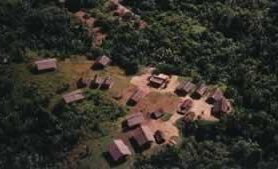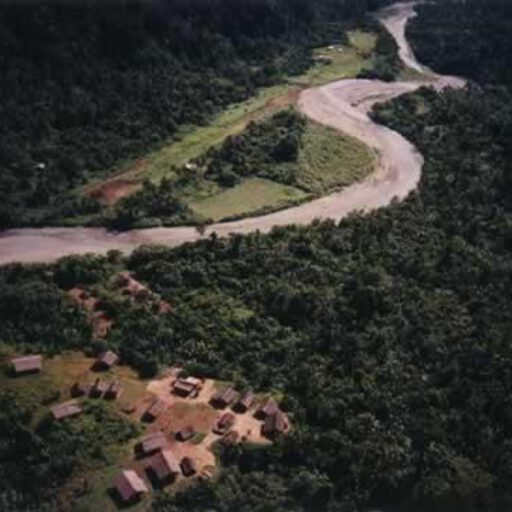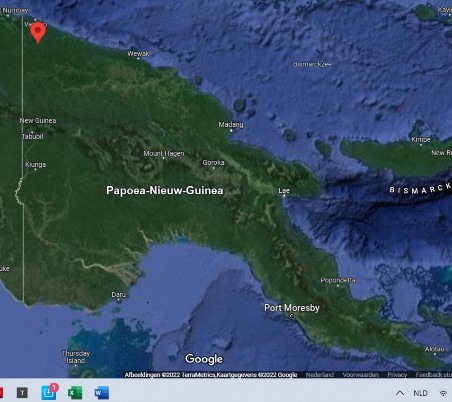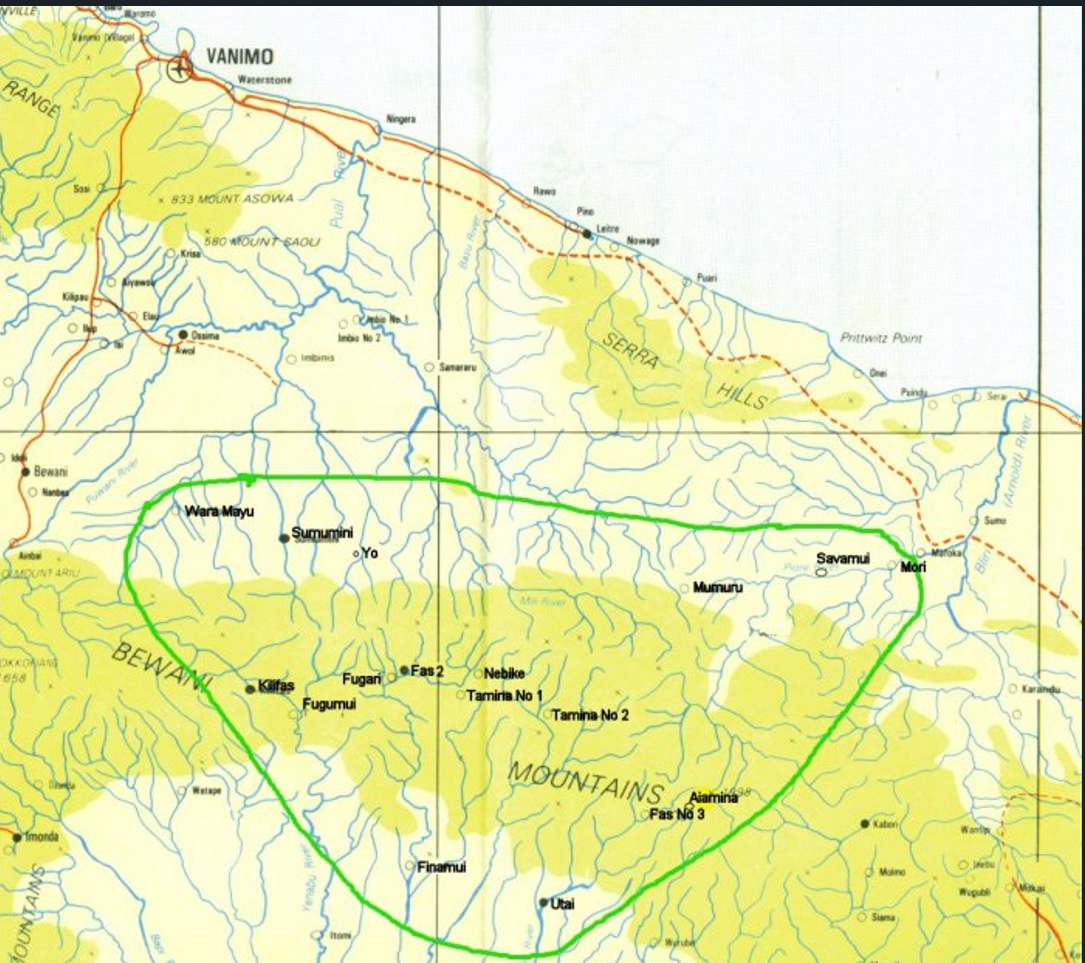Fas – Project
Linguistic research program into Fas (Momu),
an endangered Papuan Language
The Fas language is spoken in the northwest of Papua New Guinea, in a province called Sandaun. We studied the language over intermittent periods from 1977 to 1989 and lived in Kilifas village. The parents or grandparents of the present population still wore gourds and string skirts. One generation earlier stone axes were still used. “Primitive” it may seem to the Western eye, but there is nothing primitive about the language they speak. Fas is highly complex and a challenge to the investigating linguist. A language that, at the same time, is endangered and may be at the brink of getting lost.
Kilifas village
In 1988/89 it felt like we were getting close to getting a grip on the language, when personal circumstance grinded the work to a halt. As I (Wietze Baron) saw now way of continuing the research, I turned to IT to procure an income. It never felt right. I still have boxes full of materials, concept articles, written notes etc. that should be processed and made available to the linguistic community at large.
And then, right now, there is renewed interest in this area and the languages spoken there. I had published a survey of a number of local languages on the internet, tentatively assumed under the name of Kwomtari – Phylum. It has recently drawn quite a bit of attention. While European languages like English, Spain, Russian etc. up to languages in India can be seen to belong to the same family of languages, called a “Phylum” in linguistic terminology, languages in Sandaun province can, so far, not be linked to anything outside of Papua New Guinea or even further afield in PNG itself. Some of these languages may not survive the passing of time, they are endangered.
Papua New Guinea
Research into endangered languages is crucial for several reasons. Firstly, it helps preserve cultural diversity by documenting and understanding unique linguistic expressions. Secondly, it contributes to linguistic knowledge, aiding our understanding of language evolution and structure. Lastly, it supports efforts to revitalize and maintain endangered languages, fostering cultural identity and enriching our global heritage.
Fas Region
Endorsed by international Linguists, we are trying to get the funds together enabling me to process the data that I have available and make it public, on this website and sites like researchgate.net, academia.edu and others.
PS:
Linguistic research is crucial for understanding and preserving languages, unravelling the complexities of human communication, and enhancing language-related technologies. It helps us grasp cultural nuances, aids language preservation, and contributes to the development of education and communication strategies. Moreover, linguistic research plays a pivotal role in fields like artificial intelligence, cognitive science, and sociolinguistics, influencing various aspects of our interconnected global society.


